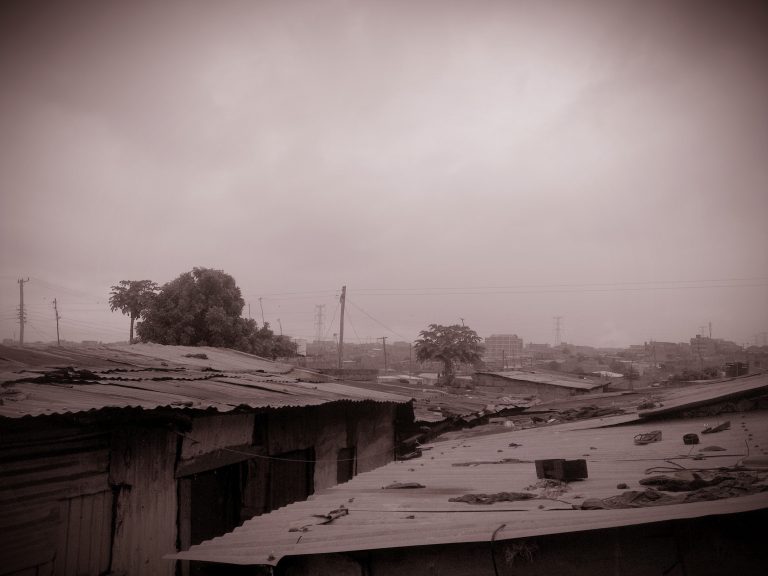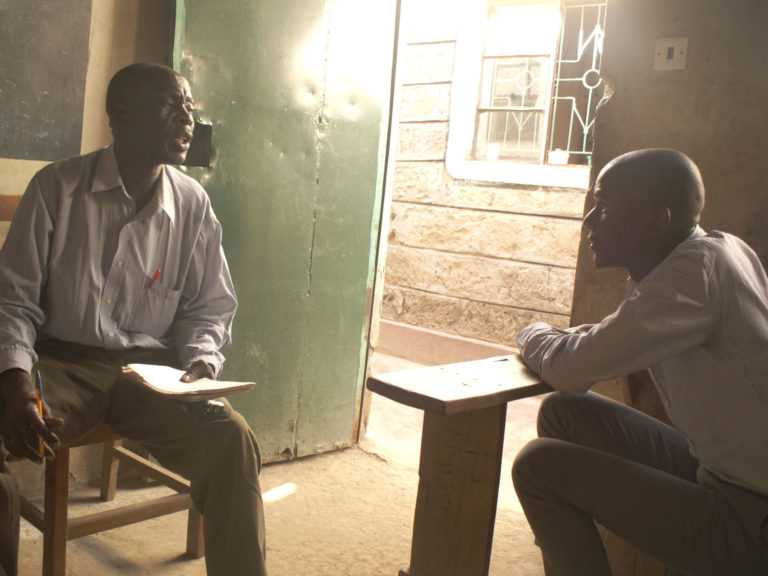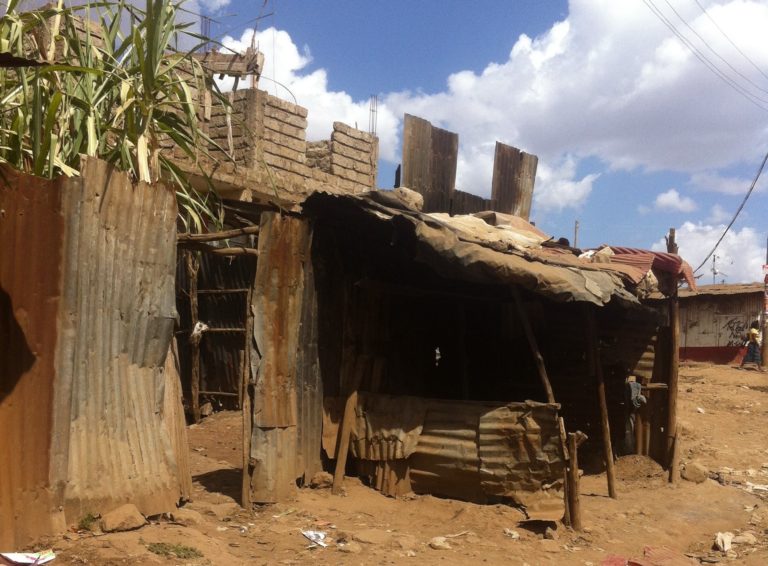Founding members Anna Will and Fanny Schorr toured Africa in 2012. This is a text they wrote during their stay in Kenya.
Early day. A warm sun. Excited kids and a highly motivated uncle.
“Let’s go to safari!” A safari on the trail of the water supply of their village. We are starting a hike in the direction of the river. 5 children, one uncle, Joseph and us.
On our way, the safari guide points out every pipe he discovers and explains in detail that it is filled with water. We feel like 3-year-olds. When he finally tries to pry open a manhole cover to bring us closer to the wonder of the water and the pipes, we quickly explain that we know such constructions from Germany. Slightly disappointed, he straightens up again and, terribly confused, continues on his way. We have a lot to laugh about.
Each time we look around, more children following us, giggling, avoiding our gaze or looking at us with the already familiar stunned and completely confused look.
I, Fanny, am smiling at a child and it starts to cry and hides behind his sister.
Hm…
The green is wonderful. Fields are lying on steep hills.
“Here I met a hippopotamus!” the uncle, who has spent his entire life in this village, is pointing on the way. “Very dangerous. There-” our eyes wander to the left into the valley. There are high trees with curved leaves. “live monkeys, but they only come here to sleep. And that” we turn around a bend and face a muddy, torrential river ” brings our drinking water “. Smiling proudly he presses his hands into his sides.
Suddenly the children behind us start laughing. Diana, a little neighbor girl, scratches all over her body, performing an almost silly dance. Here in Kenya, this is pretty clear evidence that ants have crawled in their clothes. If they bite it itches pretty painfully.
Quickly we go to help her, pull up her shirt to peck the annoying animals from her stomach. The ants are not easy to find, however, highly visible is a rash that extends over the entire upper body.
Scratch marks on the back.
White rash under the curly hair.
Her forehead too warm. Your hands too cold and too thin.
A shock in this idyllic scene of rushing water and lush green. The playful carelessness vanished.
“That’s normal,” voices answer our probing questions. We go to the doctor with her, by the way saving a leg for 3 euros, and buy the medicine, her family can not afford.
“Hygiene and dirty water.” These are the reasons and a cockroach is listening to me writing.
From now on every time we walk through the village, we pay attention to the physical condition of the children, who are surrounding us all of the time.
Full of laughter and cheerfulness.
We often discover this rash.
One day Zipora, a good mother and biology teacher, takes us with her to her family.
She shows us an inflamed pus on the head of a child and a bloody scratched neck and asks us whether to go to the doctor with it.
We examine her siblings. A pretty young girl, maybe 13 years old, does not want to us show her belly. Eventually does it anyways. Her belly button sticks about 4cm out of her stomach. She is very embarrassed.
Oh how angry we are! Angry that these people, who are so full of love, full of diligence and strength will never have the chance to lead a life that will do them justice.
It’s not up to them.
Joseph calls it “the cost of life”. Too much work, too little and too expensive physicians, hardly education, dangerous diseases, malnutrition and poor hygiene leave people with an average life expectancy of 56 years.
How to get along in this world?
We know that we can not give up. The two of us do not save this world by dragging half of the village to the doctor.
We find energy in the idea to produce educative billboards and to distribute and hang them up whilst traveling through the villages. We go to a pediatrician who provides us with all the important information.
„The parents just can not recognize diseases“, says the doctor. They go to a healer, the witchdoctor, to get herbal tinctures. Traditions that cost children’s lives.
Every eighth child under the age of 5 dies of malaria, however, this is the least dangerous of the three major childhood diseases in this country.
Would people simply have more knowledge about it.
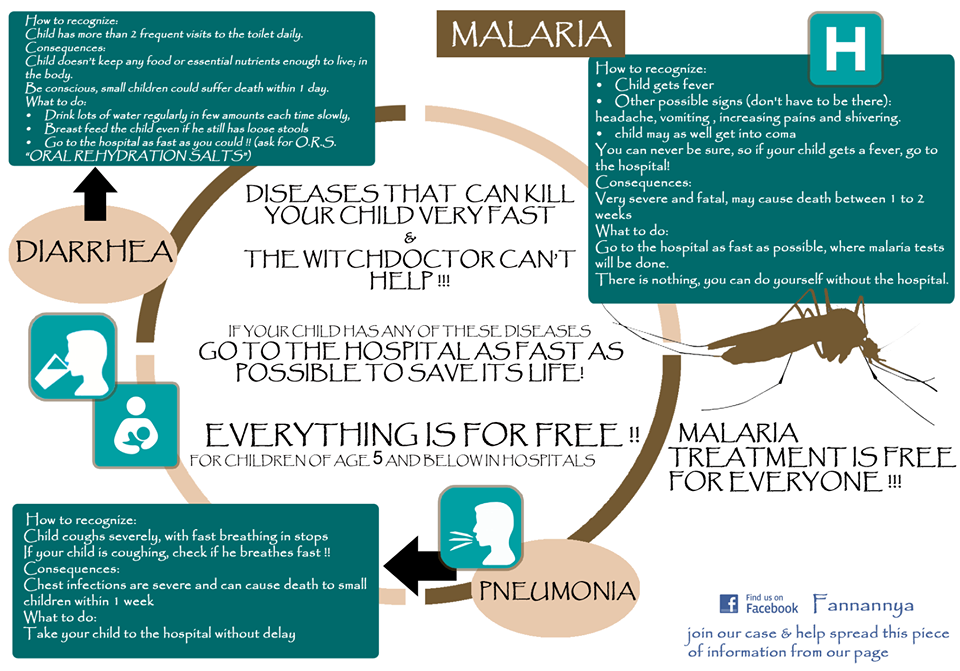
One of the posters Josefe, Fanny and Anna were hanging in villages and slums
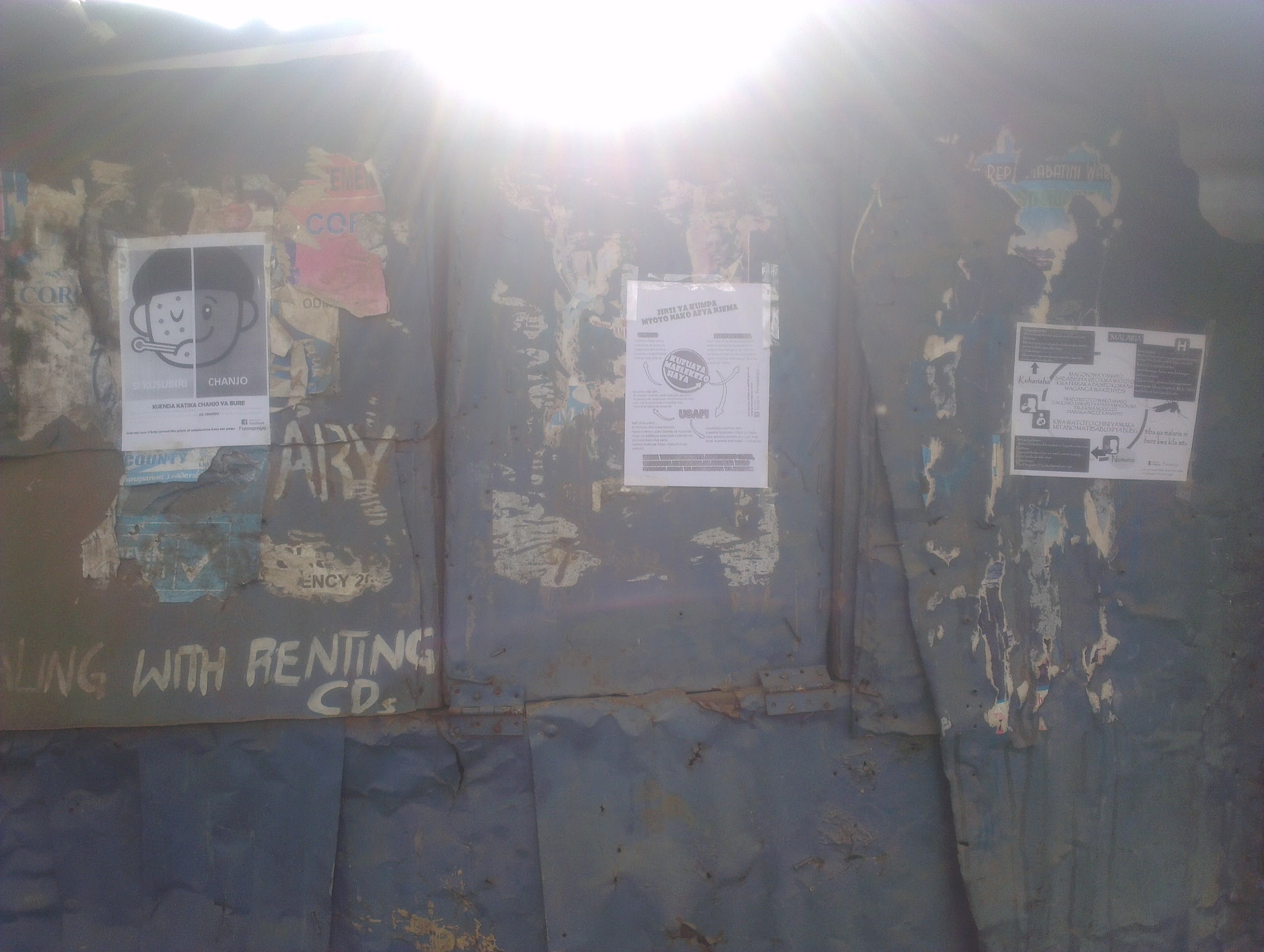
Posters hanged in Matare Slum, Nairobi
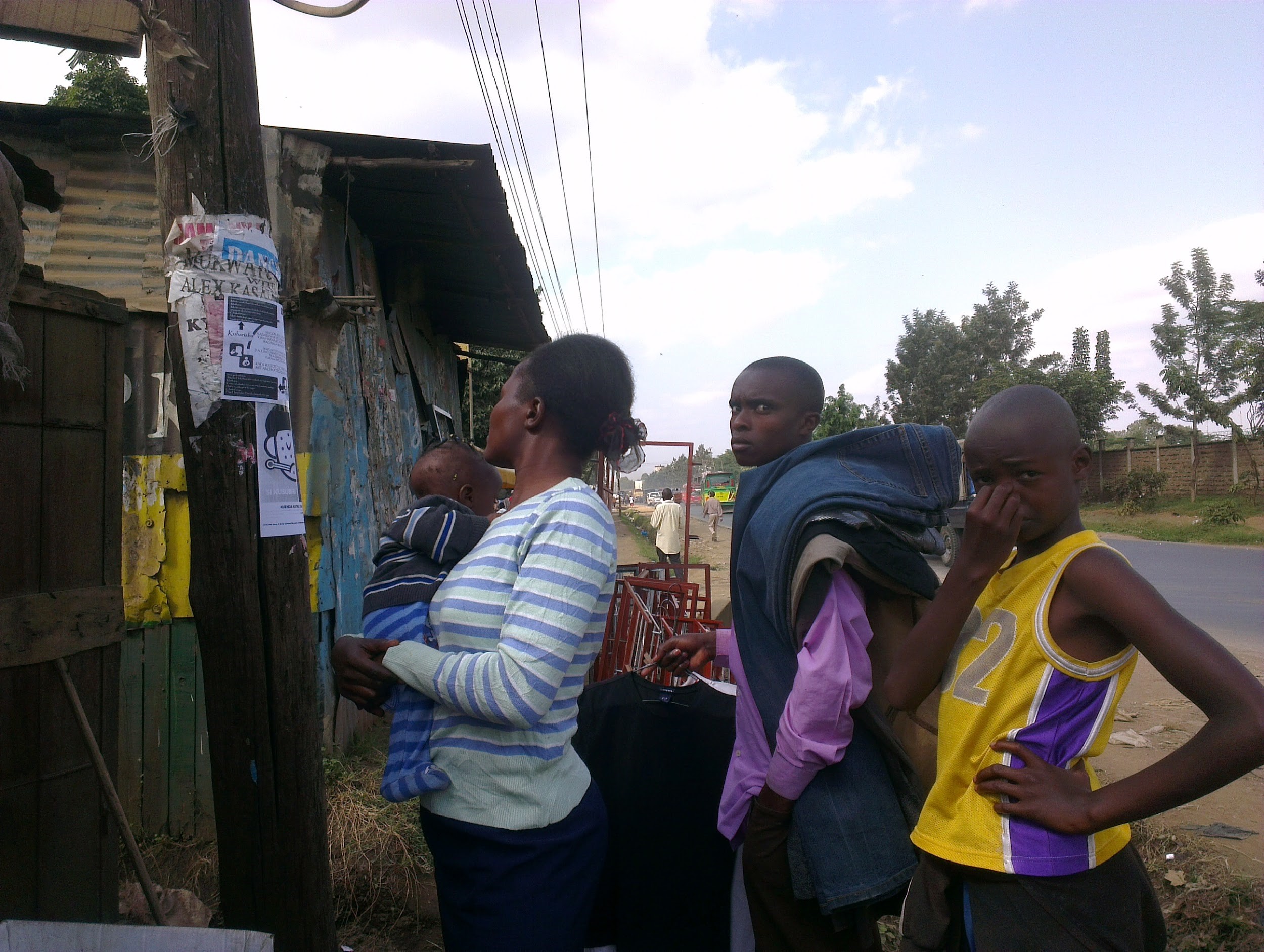
Interested citizens in Matare, Nairobi

